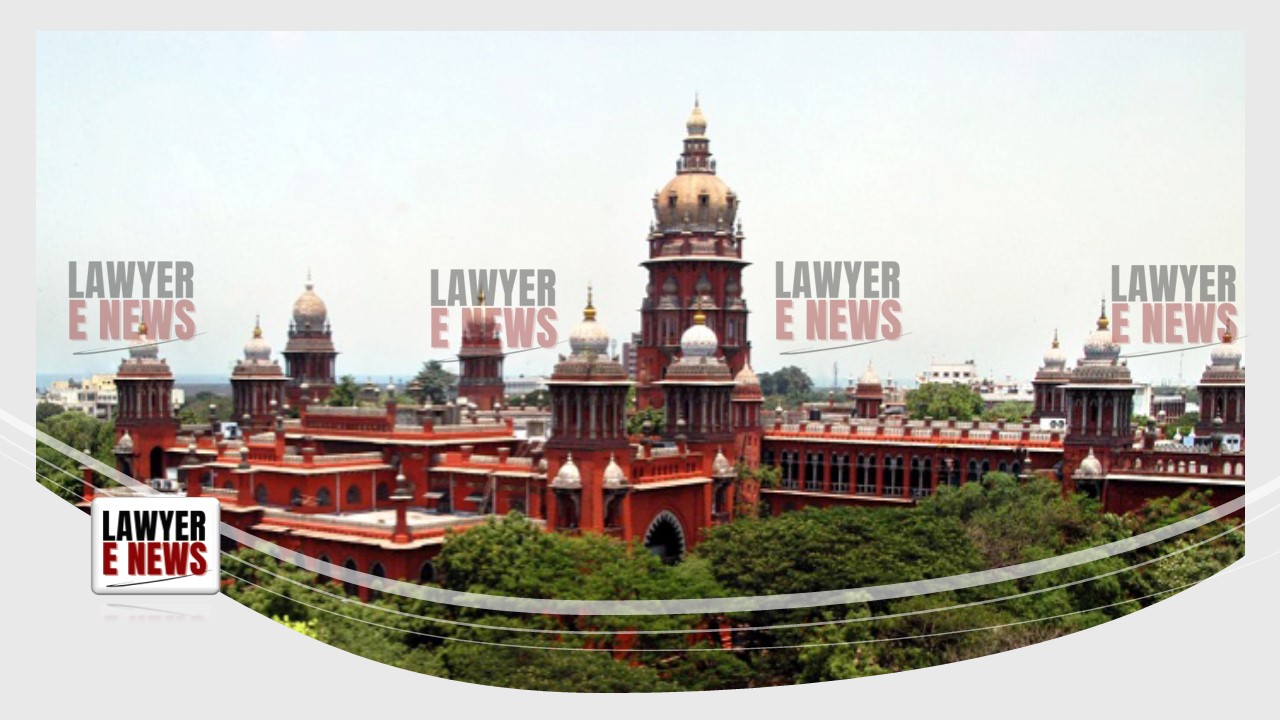-
by Admin
16 February 2026 4:21 AM



Right to Expression is Subject to Public Peace – Madras High Court resolved a dispute over a denied protest against alleged temple land encroachments at Thiruparankundram Temple. The case arose after police and administrative authorities denied permission for the demonstration citing security concerns.
A bench comprising Hon’ble Dr. Justice G. Jayachandran and Hon’ble Ms. Justice R. Poornima balanced the fundamental right to protest with public order concerns, stating: “The right of expression should always be subject to public peace and other constitutional restrictions. However, the issue could have been handled in a better way.”
The Court intervened to mediate a resolution, allowing the protest at Pazhanganatham Junction instead of Thiruparankundram Temple, with conditions to ensure public peace and police protection.
“Section 144 Orders Must Be Exercised Cautiously”
The petitioners, including Hindu Dharma Parishad, had approached the Court after the Assistant Commissioner of Police denied their request to hold a protest, and the District Collector imposed a prohibitory order under Section 144 Cr.P.C. for two days (February 3-4, 2025), citing the risk of communal disharmony.
The Court emphasized that orders under Section 144 must be exercised cautiously and proportionately, noting: “Public order is a legitimate concern, but blanket prohibitions without exploring less restrictive alternatives cannot be justified.”
While recognizing the state’s duty to maintain law and order, the Court ruled that protests should not be arbitrarily restricted and directed authorities to provide a reasonable alternative venue.
Compromise Reached: Protest Allowed with Conditions
After discussions involving Additional Advocate Generals and Public Prosecutors, the Court facilitated a compromise, allowing the protest to take place at Pazhanganatham Junction between 5:00 p.m. and 6:00 p.m.
The Court imposed conditions that “only one megaphone shall be used, no provocative slogans shall be raised, and the entire protest must be video-recorded.” The police were also directed to record the protest, with the organizers instructed to allow this “without interference or objection.” The responsibility for ensuring the peaceful conduct of the protest was placed on the petitioners.
The Court acknowledged that shifting the protest away from the temple premises would prevent inconvenience to devotees, ensuring a balance between religious harmony and democratic rights.
The Court affirmed that “the right to protest is a fundamental right under Article 19(1)(a) and 19(1)(b) of the Constitution, but it is not absolute and is subject to reasonable restrictions in the interest of public order.” It held that “the authorities must not impose blanket bans but regulate protests proportionately.”
On the exercise of prohibitory orders under Section 144, the Court ruled that “such orders must be based on clear threats to public order, not vague apprehensions.” It observed that “the police failed to consider alternative venues before denying permission,” which required rectification by judicial intervention.
Emphasizing the need for a balance between public order and democratic rights, the Court stated: “Authorities should have handled the issue in a better way. A constructive resolution through dialogue is preferable to outright prohibitions.”
Final Order: Protest Permitted at Alternative Venue
The writ petitions were disposed of with the direction that the demonstration proceed at Pazhanganatham Junction with appropriate police arrangements. The matter was posted for compliance review on February 19, 2025.
By intervening to facilitate a peaceful resolution, the Madras High Court reinforced constitutional protections for protests while ensuring public order is maintained.
Date of decision: 04 February 2025
